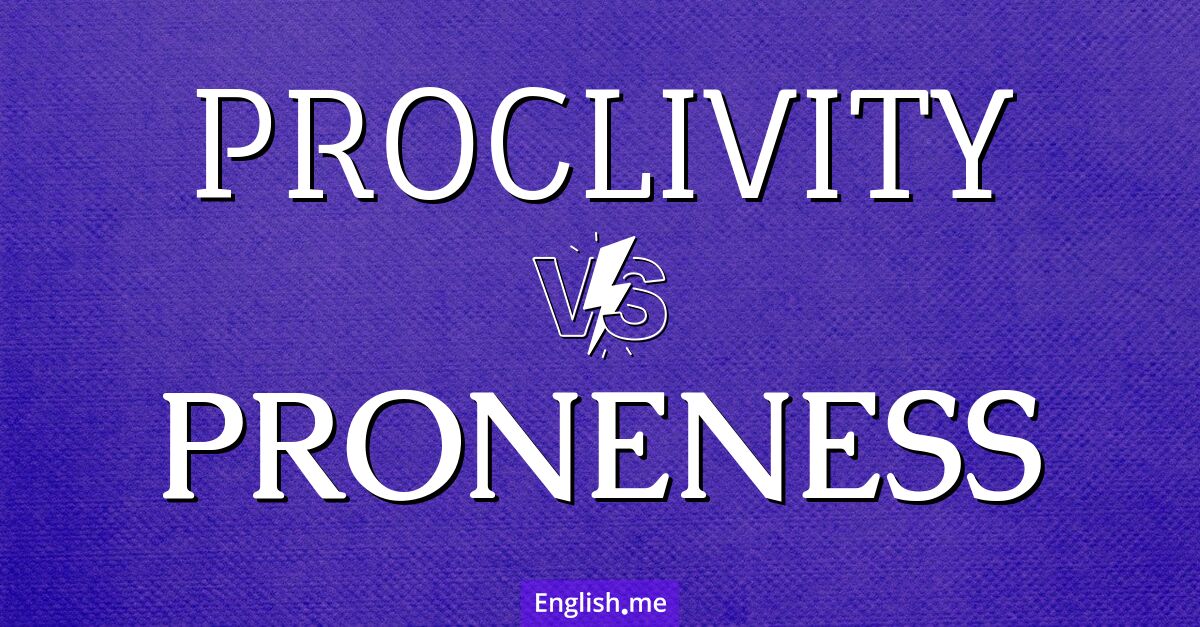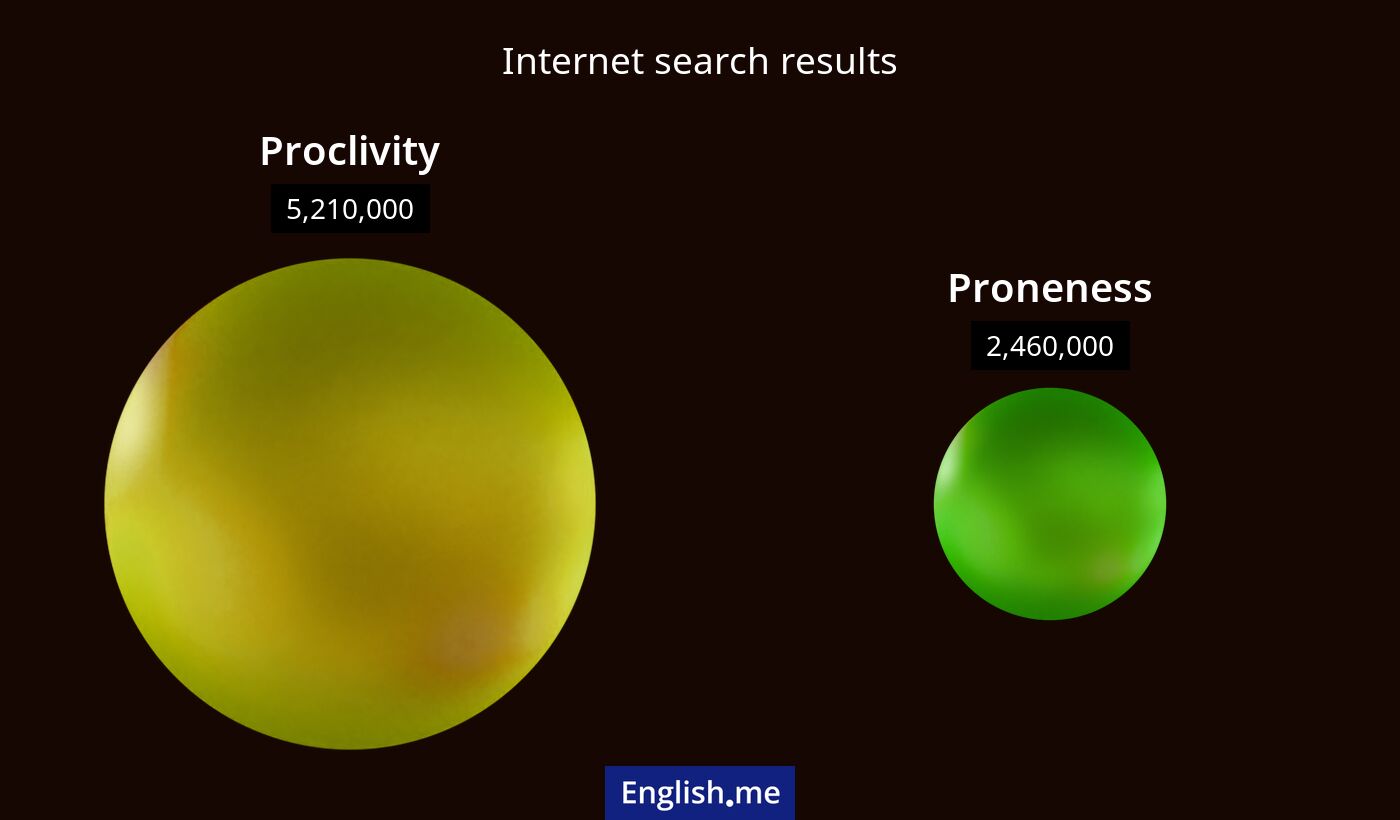"Proclivity" vs. "proneness": nuances of natural tendencies
Reviewed and edited by  Lloyd Cooper 23/12/2024, 14:19
Lloyd Cooper 23/12/2024, 14:19
English.me team member

 What is similar?
What is similar?
Both "proclivity" and "proneness" refer to a tendency or inclination toward something.
 What is different?
What is different?
"Proclivity" often implies a natural or habitual inclination, sometimes with a neutral or positive connotation, while "proneness" typically refers to a susceptibility to something negative or undesirable.
 Which one is more common?
Which one is more common?

 Examples of usage
Examples of usage
Proclivity- She has a proclivity for learning new languages.
- His proclivity for hard work earned him a promotion.
- They have a proclivity to donate generously to charity.
- Due to his proneness to injury, the athlete missed several games.
- Her proneness to allergies made springtime difficult.
- The region's proneness to earthquakes requires sturdy construction.

 English
English español
español française
française italiano
italiano deutsche
deutsche 日本語
日本語 polski
polski česky
česky svenska
svenska Türkçe
Türkçe Nederlands
Nederlands